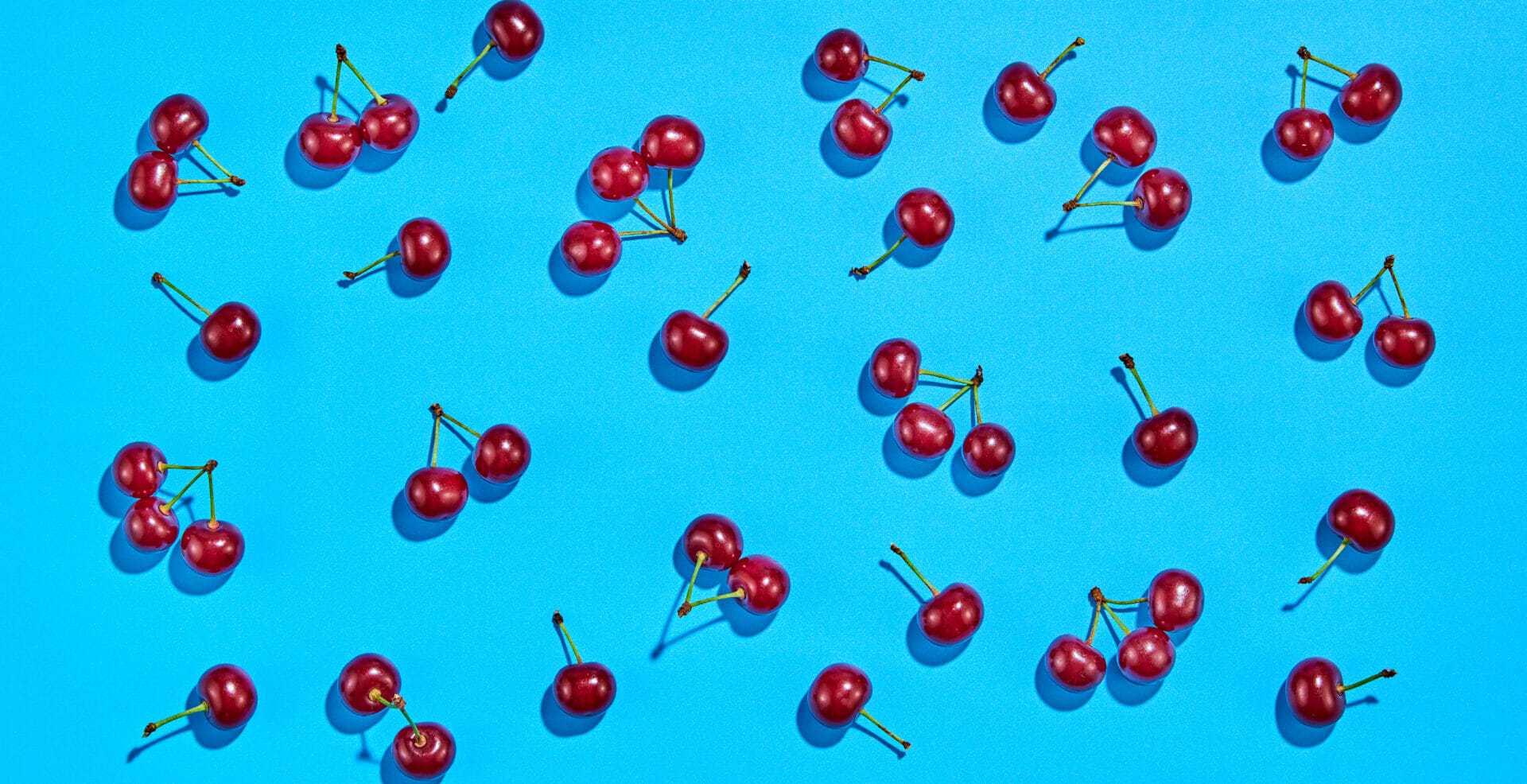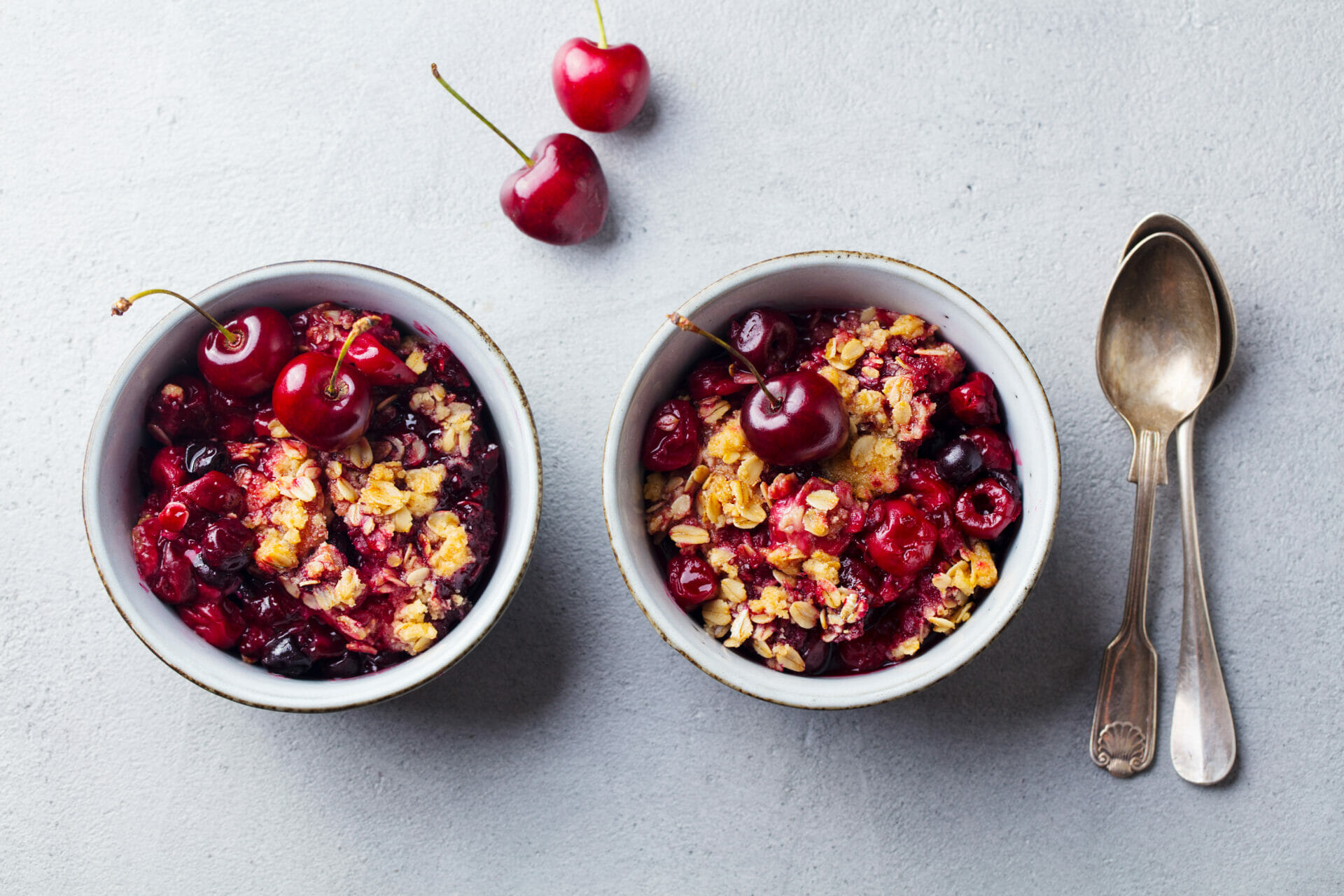A bowl of juicy cherries—is there anything more evocative of summer? This superfood, which is sweet, portable, and filling, deserves a place in your diet. According to Samantha Heller, RD, who is based in New York City, “Cherries are a rich source of healthful components like fiber, vitamin C, potassium, and polyphenols.” (Plant substances called polyphenols have antioxidant effects.)
Cherries come in two main varieties: sweet and sour. According to Heller, sweets are the kind you purchase fresh at the store for snacks, but tart cherries are frequently used in cooking and baking. According to research, “both have been demonstrated to have health benefits,” she adds.
Learn more about this juicy summertime classic by reading on.

Nutrition Facts for Cherries
According to the USDA, one cup of fresh cherries contains:
Calories: 95
Protein: 1.6 grams (g)
Fat: 0.3 g
Carbohydrate: 24 g
Fiber: 3.2 g (making them a good source)
Sugars: 19.2 g
Calcium: 20 milligrams (mg)
Iron: 0.5 mg
Magnesium: 17 mg
Potassium: 333 mg
Vitamin C: 10.5 mg (making them a good source)
What Are Cherries’ Potential Health Benefits?
1. Gout
In December 2019 in Evidence-Based Complementary and Alternative Medicine, a comprehensive review of six research found that participants who consumed cherries experienced fewer gout flare-ups than those who did not. Cherries have been reported to lower blood levels of uric acid, a metabolic waste product associated with kidney stones and gout. proper up arrow Additionally, they can aid in reducing inflammation to avert potential future assaults. The researchers state that further credible study is required.
2. Sleep
Melatonin, a hormone the body produces before sleep, can be found in tart cherries. Twenty adults participated in a randomized controlled trial that was reported in the European Journal of Clinical Nutrition. The results showed that those who consumed tart cherry juice concentrate for one week saw an increase in melatonin levels as well as more and better-quality sleep compared to those who received a placebo. A more recent randomized controlled experiment indicated that persons over 50 with insomnia who drank 8 ounces of sour cherry juice twice daily for two weeks slept for an extra 84 minutes compared to the placebo group. The study was published in March 2018 in the American Journal of Therapeutics. More research is required because this study was too small (only eight participants).
3. Disease Threat
The evidence is “reasonably strong” to suggest that cherries help lower blood pressure, reduce oxidative stress and inflammation (two factors that raise the risk for disease), and lessen muscle soreness after a strenuous workout, according to a review of 29 human studies published in March 2018 in Nutrients.
Overall, keep in mind that while there may be evidence that cherry consumption is beneficial for some health conditions, it is not a panacea, according to Heller. Additionally, she points out that many of these trials use concentrate or cherry powder, which may be administered in higher doses than a person would typically take in the form of fresh cherries. As a result, while it can be a part of a diet high in plants that supports health and well-being, it’s crucial to manage expectations.

Can Cherries Aid with Weight Loss?
Cherry consumption may not directly cause weight loss, but cherries can be included in a diet, according to Kirby Walter, RDN, of The Nourish RD in Chicago. According to a study published in the Journal of Nutrition in October 2019, it is an excellent source of fiber, and diets high in fiber have been associated with weight loss. Fiber has a satiating impact that keeps you from overeating by making you feel filled for longer.
Fresh cherries are advantageous for weight loss for additional reasons. As a low-glycemic fruit that helps regulate blood sugar, it is a great food to add to your diet if you’re attempting to lose weight, according to Walter. They also have a delicious flavor and are relatively low in calories and sugar.
How to Pick and Sustain
According to Ohio State University Extension, while buying fresh ones, you should try to get ones that feel firm and plump and have a shiny or brilliant appearance. Avoid those that are mushy, shriveled, or soft because they are probably past their prime.
Cherries should preferably be kept in a shallow container in the refrigerator to prevent on top from crushing to the bottom. This will help to keep the cherries fresh. Just before eating, rinse it in cool water.
Consuming Cherries the Right Way
Sweet cherries are best eaten as a snack straight from the refrigerator, with the pits and stems carefully removed before ingestion. If you frequently eat it, think about investing in a cherry pitter; the OXO Cherry and Olive Pitter is a popular, cost-effective choice ($10.99, Target.com). Using this fruit in food preparation, baking, and snacking will be easier with the help of this tool.
By the way, while ingesting a cherry pit by accident is unlikely to be harmful, doing so can be quite dangerous for choking, especially for young children.
For a satisfying mixture of fiber, protein, and fat, Courtney Darsa, RDN, CDCES, a certified diabetes care and education specialist in New York City, suggests mixing cherries and nuts. Additionally, she claims that the iron in the nuts would be better absorbed by your body thanks to the vitamin C in the cherry.
You can still enjoy them by purchasing frozen ones even if it’s not the season. Some can be placed in a small basin and eaten like frozen berries. Additionally, you may boil down frozen cherry to make a sauce without sugar to drizzle over ice cream, yogurt, pancakes, and even meat (such as chicken or pork).
Tart cherries are available dried, as preserves (excellent for toast), frozen (for use in sweets and baking), or as juice. You may stir them into hot oatmeal, sprinkle them over yogurt, or add them to trail mix (drink as is or add a splash to sparkling water for a mocktail).

